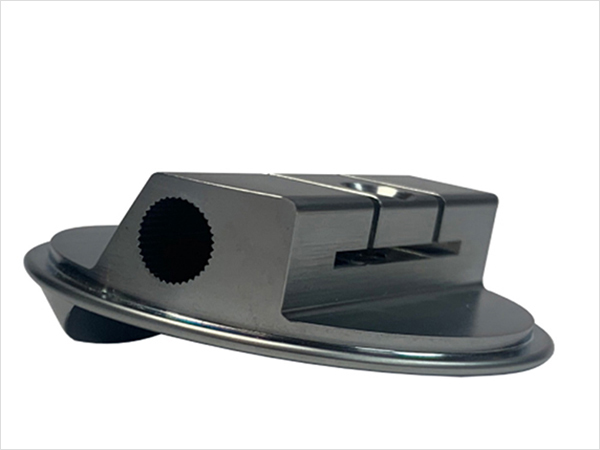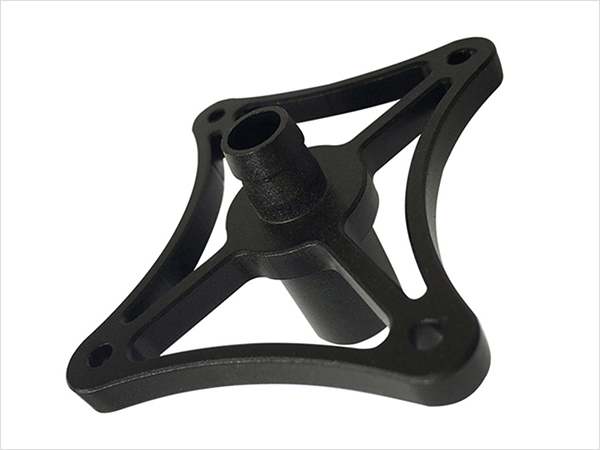Application Of Plastic Materials
In Field Manufacturing
01



Plastic materials and their applications in automobile manufacturing
● Polypropylene (PP): Polypropylene is a common plastic material with light weight, chemical resistance and low cost. In the automotive field, polypropylene is commonly used in the manufacture of automotive interior parts, storage boxes and bumpers, etc.
● Polycarbonate (PC): Polycarbonate has the characteristics of high strength, impact resistance and good transparency. In the automotive field, polycarbonate is commonly used in the manufacture of automotive lampshades, mirror housings and instrument panels, etc.
02

Plastic materials and their applications in robot manufacturing


● Polypropylene (PP): Polypropylene is a common plastic material that is lightweight, chemically resistant and low-cost for robot parts and connectors. For example, robot parts, brackets and connectors are often CNC machined from polypropylene.
● Polystyrene (PS): Polystyrene is a lightweight, hard and low-cost plastic material suitable for structural and protective parts of robots. For example, frames, bases, and covers for robots are often made from polystyrene.
03



Plastic materials and their applications in Medical manufacturing
● ABS (Acrylonitrile Butadiene Styrene): ABS is a versatile and impact-resistant plastic material commonly used in medical device manufacturing. It is often used for casings, housings, and structural components of medical equipment such as imaging devices, monitoring systems, and laboratory instruments.
● Polyetheretherketone (PEEK): PEEK is a high-performance thermoplastic material known for its excellent mechanical properties, chemical resistance, and biocompatibility. It is often used in the manufacturing of implantable medical devices, surgical instruments, and components that require high strength and resistance to sterilization processes.

Introduction to Plastic Machining
Plastic machined parts are a lightweight and cost-effective alternative to metal parts. They are easier to machine and offer compatibility with a wide range of plastics. CNC machining is a popular choice for engineers and product teams due to its versatility. Different types of plastics have their own strengths and weaknesses for CNC machining applications.
Plastic Machining Services
Our company offers state-of-the-art plastic CNC machining services with a focus on consistent quality and fast turnaround times. With a large fleet of milling and turning machines, we have the capacity to handle orders of any size, from small prototypes to complex production runs. Our extensive network of manufacturers enables us to work with a wide variety of plastics and provide various surface finish options. We are dedicated to meeting the needs of our customers and providing cost-effective solutions.
Advantages of CNC Plastic Machining
CNC plastic machining is a subtractive process that allows for the creation of intricate plastic components. Our sophisticated 3-, 4-, and 5-axis CNC machines can produce high-quality parts with complex geometries. Compared to 3D printing or injection molding, CNC machining offers tighter tolerances and a wider selection of polymer materials. It is particularly cost-effective for low volume manufacturing. By leveraging our extensive CNC plastic machining supply chain, we can deliver reliable and efficient solutions for your plastic machining needs.

Materials Comparison Table
| Plastics | Color | Melting point | Density | Characteristic |
| PEEK | Black | 150℃ | 1.51 | 1.Good toughness and impact resistance |
| 2.Good strength and hardness,easy to sharpen the knife | ||||
| 3.Excellent uv resistance |
| Plastics | Color | Melting point | Density | Characteristic |
| POM | Black&White | 160℃ | 1.41 | 1.High solvent corrosion resistance |
| 2.High tensile resistance | ||||
| 3.Good electrical insulation | ||||
| 4.Good sliding and abrasion resistance |
| Plastics | Color | Melting point | Density | Characteristic |
| PA | Creamy White | 220℃ | 1.14 | 1.Thermal deformation |
| 2.Good slippability and high chemical stability | ||||
| 3.High evaporationb |
| Plastics | Color | Melting point | Density | Characteristic |
| PC | Transparent,Dark Brown | 150℃ | 1.2 | 1.Heat-resistant invariance |
| 2.Good electrical insulation | ||||
| 3.Low water absorption,self-extinguishing | ||||
| 4.High impact toughness |
| Plastics | Color | Melting point | Density | Characteristic |
| PU | Amber | 260℃ | 1.24 | Good elasticity and toughness,suitable for making elastic gasket |




